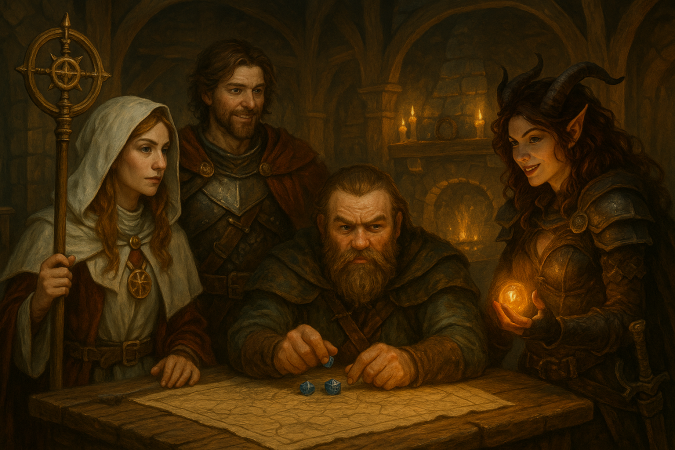Single-player games used to be a solo affair—you were the hero, and everyone else? Just background noise. But in the evolving world of RPGs, your character is only as compelling as the party backing them up. Modern games are leaning hard into team-based storytelling, crafting experiences where group dynamics, loyalty missions, and interpersonal conflict are just as important as slaying the next boss.
Why the Party Matters More Than Ever
Today’s RPGs are defined by relationships. No longer are your allies just there to boost your stats; they’re fully fleshed-out characters with their own opinions, skills, and personal arcs. You’re not just managing gear or talent trees anymore; you’re navigating conversations, romance options, and ethical dilemmas that impact everyone in your party.
This shift has helped shape a new gold standard in RPG design—where party-building is as strategic as it is emotional. For fans of immersive narratives and deep tactical gameplay, games like Baldurs Gate 3 capture this balance perfectly. These titles turn each group decision into a dialogue, where who you bring along can drastically alter your path, outcomes, and even the world itself.

Strategic Depth, Emotional Weight
What makes these games shine isn’t just how characters perform in combat—it’s how they react to your decisions. Games like Baldur’s Gate 3 bring a tabletop feel to digital RPGs, letting players navigate branching paths while juggling the reactions and loyalties of their companions. That means one choice could earn a friend—or ignite a mutiny.
This layered dynamic rewards players who think beyond the next battle. Who do you trust to back you up in a tough spot? Who’s going to challenge your worldview mid-quest? When your team is more than just muscle, the stakes feel higher.
From Strategy to Storytelling
There’s also a shift in how players approach character creation. Instead of min-maxing a lone warrior, players now consider how their protagonist fits into the broader party. Does your brooding rogue clash with the idealistic cleric? Can a hotheaded barbarian and a cunning mage share the same battlefield without drama?
Games are evolving to reflect these dynamics, with quests that change based on your team’s makeup and reactions. You’re no longer the only hero—you’re part of a complex network of stories that grow in tandem.
A More Connected Experience
Beyond the story, the social nature of these games reflects something broader in the gaming world: a desire for connection. Whether you’re syncing strategies in co-op or debating in-game choices with friends, party-based RPGs invite collaboration and reflection.
From starting a fresh campaign to returning to a familiar favorite, these narrative-rich adventures are more accessible than ever—ready to bring players together through shared choices, emotional moments, and unforgettable journeys.
The Party Is the Point
As RPGs evolve, they’re moving away from the “lone hero” model and embracing something richer: group dynamics that echo real-life relationships. The best modern titles prove that building a compelling party is just as satisfying as leveling up your main character.
So whether you’re into The Elder Scrolls Online, replaying Skyrim for the 1000th time, or trying to beat the Nightlord in Elden Ring Nightreign, there are plenty of fan-favorite party-based RPGs and titles that prioritize story, strategy, and connection.

